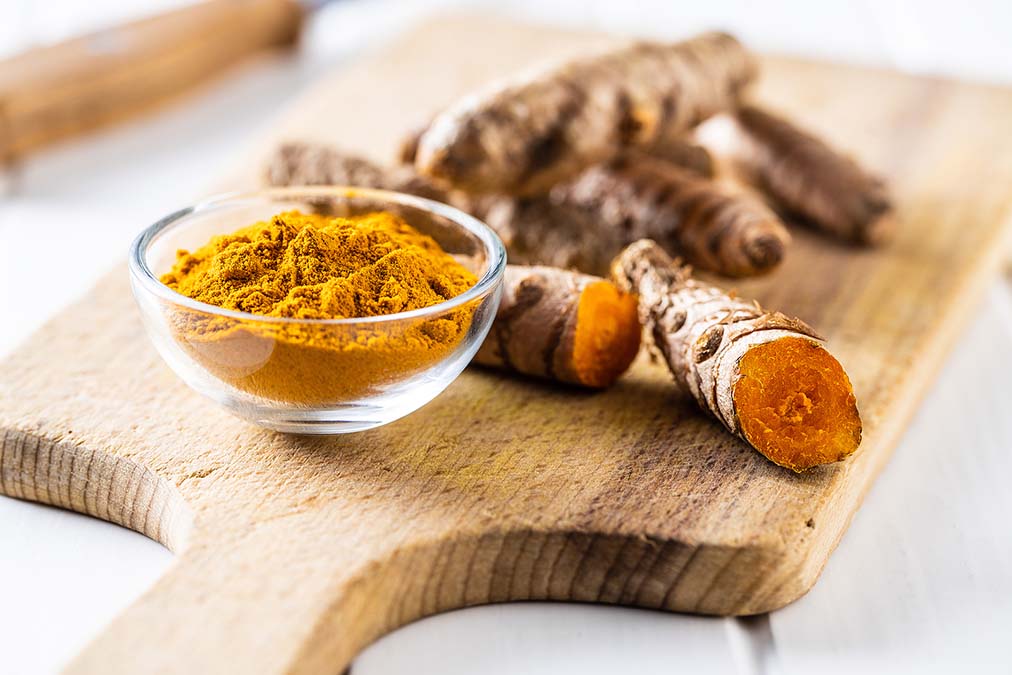 The traditional medical system tells you there is no cure for arthritis. But that doesn’t stop them from pushing pain relievers and steroid drugs.
The traditional medical system tells you there is no cure for arthritis. But that doesn’t stop them from pushing pain relievers and steroid drugs.
However, one specific type of spice has been found in repeated studies to be just as effective—or even more effective—than the leading drugs for arthritis, without any of the dangerous side effects.
Turmeric, a bright golden-yellow spice that forms the basis of many curry blends, may be as healthy as it is tasty.
Curcumin, one of turmeric’s main compounds and the one that lends the spice its color, also provides many of the spice’s beneficial properties. Curcumin is known to have antioxidant and anti-inflammatory effects.
In addition to curcumin, turmeric contains other compounds of interest. Turmeric and its active compounds have been widely studied as potential treatments and preventive agents against a wide range of diseases and health conditions, including some forms of arthritis.
Long used in traditional Ayurvedic medicine to treat inflammatory conditions of all kinds, turmeric has numerous benefits that science has begun to understand, including the ability of curcumin to inhibit the proliferation of inflammatory cells and its ability keep them from invading other tissues.
Curcumin also inhibits pro-inflammatory signaling molecules. One study found that curcumin may be more effective than low doses of the steroid drug prednisone at controlling inflammation in its early stages. In an animal-tested laboratory experiment, curcumin surpassed prednisone in the first 6 hours after a flare-up.
A clinical trial of patients with knee osteoarthritis (OA) found turmeric to as effective as ibuprofen. Turmeric markedly decreased pain and stiffness, with 96% of participants reporting satisfaction with their herbal treatment. Additionally, the turmeric group reported significantly fewer episodes of abdominal discomfort than the ibuprofen group.
Because curcumin is poorly absorbed in the intestinal tract, large doses are necessary to achieve therapeutic effects. To mitigate this problem, efforts have been made to devise methods for making curcumin more absorbable.
In one such experiment, nano-emulsions—tiny particles of curcumin suspended in an oil base—were administered to laboratory animals. Researchers found that absorption of the nanoparticles was three times greater than that of non-emulsified curcumin.
In another arm of the same experiment, researchers injected curcumin directly into RA-affected joints and found the herbal compound to be on par with methotrexate, a prescription drug commonly used for the treatment of RA. However, unlike the herb, the drug causes a host of potentially dangerous adverse effects and hazardous drug interactions.
Curcumin may thus offer a safe and natural alternative to Cox-2 inhibiting drugs, many of which were removed from the market years ago due to their often-severe side effects.
In one clinical trial, patients with osteoarthritis were given 30-mg doses of curcumin 3 times per day, or 25 mg of the non-steroidal anti-inflammatory drug diclofenac in three daily doses. The results show that the two therapies were similarly effective, with curcumin being marginally better.
The water-soluble polysaccharide compounds in turmeric were found to be effective against both the acute and chronic stages of inflammation in laboratory experiments. One study found these compounds to be comparable to curcumin, while another found that they had potent inhibitory effects against inflammation-signaling molecules.
According to one study, a turmeric essential oil called elemene could help in the management of ankylosing spondylitis, a form of degenerating arthritis in which spinal and other joints progressively fuse.
In this study, ankylosing spondylitis patients, who were undergoing hip replacement surgery, donated their affected hips for the experiment. Scientists treated the affected joint tissues with elemene and found evidence of decreased ankylosing spondylitis-affected cells after 48 hours.

 Multiple Sclerosis
Multiple Sclerosis Banishing Bronchitis
Banishing Bronchitis Gum Disease Gone
Gum Disease Gone Overcoming Onychomycosis
Overcoming Onychomycosis Neuropathy No More
Neuropathy No More The Prostate Protocol
The Prostate Protocol Brain Booster
Brain Booster
 Ironbound
Ironbound
 Solution for Shingles
Solution for Shingles
 The Bone Density Solution
The Bone Density Solution
 The Ultimate Healing Protocol
The Ultimate Healing Protocol
 The Parkinson's Protocol
The Parkinson's Protocol
 The Chronic Kidney Disease Solution
The Chronic Kidney Disease Solution
 Overthrowing Anxiety
Overthrowing Anxiety The Fatty Liver Solution
The Fatty Liver Solution The Hypothyroidism Solution
The Hypothyroidism Solution
 The End of Gout
The End of Gout The Blood Pressure Program
The Blood Pressure Program
 The Oxigized Cholesterol Strategy
The Oxigized Cholesterol Strategy
 Stop Snoring And Sleep Apnea Program
Stop Snoring And Sleep Apnea Program
 The Arthritis Strategy
The Arthritis Strategy The Vertigo & Dizziness Program
The Vertigo & Dizziness Program The 3-Step Diabetes Strategy
The 3-Step Diabetes Strategy Hemorrhoids Healing Protocol
Hemorrhoids Healing Protocol The Erectile Dysfunction Master
The Erectile Dysfunction Master Weight Loss Breeze
Weight Loss Breeze The IBS Program
The IBS Program The Insomnia Program
The Insomnia Program The Migraine and Headache Program
The Migraine and Headache Program The Neck Pain Solution
The Neck Pain Solution The Menopause Solution
The Menopause Solution The Ejaculation Master
The Ejaculation Master The TMJ Solution
The TMJ Solution The Acid Reflux Solution
The Acid Reflux Solution The Fibromyalgia Solution
The Fibromyalgia Solution The Psoriasis Strategy
The Psoriasis Strategy